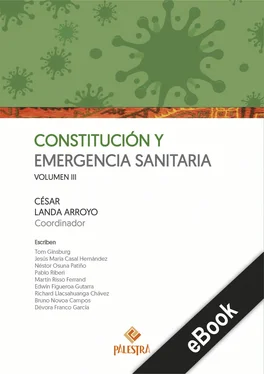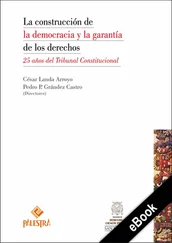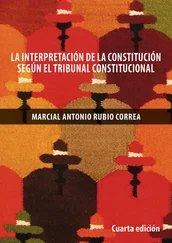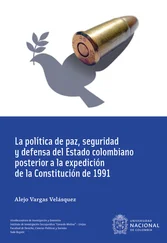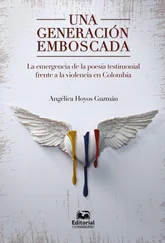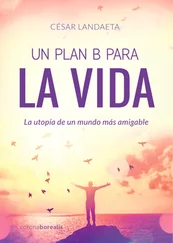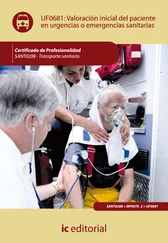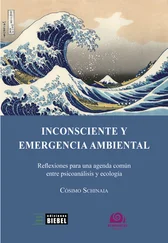César Landa - Constitución y emergencia sanitaria
Здесь есть возможность читать онлайн «César Landa - Constitución y emergencia sanitaria» — ознакомительный отрывок электронной книги совершенно бесплатно, а после прочтения отрывка купить полную версию. В некоторых случаях можно слушать аудио, скачать через торрент в формате fb2 и присутствует краткое содержание. Жанр: unrecognised, на испанском языке. Описание произведения, (предисловие) а так же отзывы посетителей доступны на портале библиотеки ЛибКат.
- Название:Constitución y emergencia sanitaria
- Автор:
- Жанр:
- Год:неизвестен
- ISBN:нет данных
- Рейтинг книги:5 / 5. Голосов: 1
-
Избранное:Добавить в избранное
- Отзывы:
-
Ваша оценка:
- 100
- 1
- 2
- 3
- 4
- 5
Constitución y emergencia sanitaria: краткое содержание, описание и аннотация
Предлагаем к чтению аннотацию, описание, краткое содержание или предисловие (зависит от того, что написал сам автор книги «Constitución y emergencia sanitaria»). Если вы не нашли необходимую информацию о книге — напишите в комментариях, мы постараемся отыскать её.
César Landa Arroyo: Ex Presidente del Tribunal Constitucional del Perú. Profesor de Derecho Constitucional en la Pontificia Universidad Católica del Perú y en la Universidad Nacional Mayor de San Marcos.
Constitución y emergencia sanitaria — читать онлайн ознакомительный отрывок
Ниже представлен текст книги, разбитый по страницам. Система сохранения места последней прочитанной страницы, позволяет с удобством читать онлайн бесплатно книгу «Constitución y emergencia sanitaria», без необходимости каждый раз заново искать на чём Вы остановились. Поставьте закладку, и сможете в любой момент перейти на страницу, на которой закончили чтение.
Интервал:
Закладка:
En ese sentido, el profesor Tom Ginsburg, de la Chicago University, presenta el rol de la Constitución federal de los Estados Unidos en la administración del Presidente Trump en su fracaso en la lucha contra el COVID-19, al ser el país con más contagiados y muertos del mundo; asimismo el profesor Jesús María Casal, de la Universidad Católica Andrés Bello de Venezuela, fundamenta cómo la pandemia ha servido para acentuar el autoritarismo del Gobierno del Presidente Maduro, al punto que se ha ampliado el Estado de alarma sin Estado de Derecho; por su parte, el profesor Néstor Osuna, de la Universidad del Externado de Colombia, realiza un recuento de las medidas y la legislación de emergencia adoptadas por el gobierno, sin que la Corte Constitucional haya declarado inconstitucional ninguna, así como, las etapas de las restricciones de derechos fundamentales, y, la de la contratación de las vacunas.
El profesor Pablo Riberi, de la Universidad de Nacional de Córdoba en Argentina, desde la teoría constitucional y la filosofía política analiza el estado de emergencia y el desequilibrio de poderes en la historia política, donde Argentina no ha sido una excepción, aun cuando las medidas de emergencia acercan a la biopolítica, las instituciones constitucionales han podido morigerar sus efectos. El profesor Martín Risso, de la Universidad Católica del Uruguay, realiza una presentación del sistema constitucional y de la administración pública de salud —que cerró el 2020 con menos de cien fallecidos y poco más de mil contagios— sin el uso de facultades de emergencia, sino de la ponderación; lo cual, en última instancia, se explica en la confianza ciudadana y la transparencia del Gobierno.
La perspectiva de la lucha constitucional contra el COVID-19 desde el interior del Perú la realiza el profesor y Juez Superior de Lambayeque Edwin Figueroa, quien, desde una perspectiva de la justicia digital, presenta los avances del acceso a la justicia virtual en tiempos de pandemia; asimismo, el profesor y Juez Superior de Ayacucho Richard Llacsahuanga realiza una reflexión crítica de las personas en situación carcelaria en medio de la pandemia, dando cuenta de las medidas gubernamentales, incluida la sentencia del Tribunal Constitucional.
Por su parte, el profesor Bruno Novoa realiza un enfoque constitucional pluricultural e intercultural del derecho a la salud, en el cual las rondas campesinas de Cajamarca han jugado un rol central en el control del COVID-19, y; finalmente la profesora Dévora Franco, de la Universidad Católica San Pablo de Arequipa, realiza una presentación del deber de progresividad de los derechos sociales como la salud, que exigen el respeto de estándares internacionales frente a situaciones como la pandemia del COVID-19.
Finalmente, el inicio de la segunda ola del COVID-19 sacude nuevamente a los sistemas de salud pública del Perú, la región y el mundo; pero, con la experiencia adquirida y las reformas introducidas, incluidas la presupuestales, se encuentran mejor preparados para un impacto menos dantesco, hasta que la vacuna se haga una realidad eficaz en la contención del COVID-19. Todo ello requiere una mayor constitucionalización de los procesos de negociación, distribución y aplicación de la vacuna bajo principios de gratuidad, solidaridad, equidad, justicia, transparencia, eficacia, progresividad, y cautela del interés general.
Lima, 12 de enero de 2021
César Landa Arroyo
Coordinador
Área de Derecho Constitucional
COVID and the US Constitution*
Tom Ginsburg
*La versión traducida oralmente al castellano se encuentra en el siguiente enlace: < https://fb.watch/3fo2_uq3wD/>
The COVID response in the United States has been extremely poor from a public health perspective. The country has the highest number of deaths in the world and is in the top ten countries in terms of cases per capita, as of this writing. President Trump has declined to wear a mask in public, and after catching the virus told Americans not to let it rule their lives. State and local governments have in many cases undermined mask-wearing, which is widely accepted as a prophylactic measure. And American citizens successfully pressured their governments to re-open quickly, leading to a major second wave of cases. Surely this is an enormous governmental failure on a scale rarely seen in democratic countries.
Yet from a constitutional and democratic perspective, the failure may not be so great. While we can say with confidence that early lockdowns would have prevented spread of the pandemic, once the virus arrived on a mass scale, it is not clear what the universally optimal policy is, in terms of the severity of a lockdown. Surely a complete and total lockdown such as occurred in Wuhan China would be good for eliminating the virus, but it also had significant costs in terms of the associated economic shutdown and in restrictions on civil liberties. Quarantines also create their own risks and put pressure on mental health. A pandemic response must balance public health, economic, and libertarian considerations, with lots of complicated tradeoffs. In a democracy, the balance should be determined by political processes, informed by technical information.
Despite all its messiness, and its poor policy outcome, the coronavirus response in the United States has been successful in responding to the preferences of the public. This public is highly misinformed and distrustful of expertise. It important to remember that the United States is in something of an epistemic crisis, in which large segment of the population believes in conspiracy theories and distrusts science as a matter of course. The fact that around half of Republicans believe, falsely, that President Trump won the November 2020 election is evidence of this, and of course reflects his cult-like power over them. But this is not just a feature of Trumpism. We also have a longstanding libertarian tradition distrustful of all government as a matter of principle. The United States has had an extended constitutional conversation, involving state governments, courts at both states and the federal level, legislatures, scientific agencies, and the public itself, about the response. While a failure from a public health perspective it is a good response from the perspective of reflecting democratic references.
From a comparative perspective, the United States Constitution, drafted in 1787, is one of a small number without any provision for a state of emergency. The drafters of the document were skeptical about such provisions and thought law could do little to regulate crises. Indeed, they feared that executives might use emergency provisions to consolidate power, a phenomenon that has come to pass in many other constitutional systems. The absence of clear provisions on emergency has meant that the ordinary rules of governance have remained in place during the COVID-19 pandemic.
In the federal system of the United States, the “police power” is primarily located at the states, giving them the authority and duty to protect and regulate health and safety. These powers are limited by federal constitutional rights, as well as acts of Congress within its own sphere of authority. All states have emergency statutes that allow the Governor, the chief executive of the state, to call an emergency and to take extraordinary steps thereafter for a limited period. Governors were the primary determiners of policy response in the COVID-19 pandemic, and their solutions varied a good deal. In highly urban states like California, the response was early and strong. In some rural states, the response was slow and weak. These states became the primary locus of the second wave of the virus. But the second wave spread throughout the land.
Once governors began to impose lockdowns, a dialogue followed about the nature of the response. Owners of gun shops challenged the application of general lockdown orders to their businesses, claiming that the constitutional right to bear arms contained in the Second Amendment meant that they should have special protection in this regard. Faced with this argument, many cities and states reclassified gun shops as “essential businesses” that could remain open. Another challenge was to certain state laws that discriminated against out-of-state travelers, such as Rhode Island Governor’s order to stop all cars with New York license plates.
Читать дальшеИнтервал:
Закладка:
Похожие книги на «Constitución y emergencia sanitaria»
Представляем Вашему вниманию похожие книги на «Constitución y emergencia sanitaria» списком для выбора. Мы отобрали схожую по названию и смыслу литературу в надежде предоставить читателям больше вариантов отыскать новые, интересные, ещё непрочитанные произведения.
Обсуждение, отзывы о книге «Constitución y emergencia sanitaria» и просто собственные мнения читателей. Оставьте ваши комментарии, напишите, что Вы думаете о произведении, его смысле или главных героях. Укажите что конкретно понравилось, а что нет, и почему Вы так считаете.
